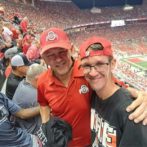Snapshots of Dementia: What I Wish I’d Known
Photo by Aaron Burden on Unsplash What is something that you wish you’d have known early on, or wished you’d have done or put in place? A woman whose husband is newly diagnosed with young-onset dementia, early stage, asked this question of other spouses/caregivers, and it moved me to think—and now, to write. That’s part of the reason behind my blog, I thought. But her question also prompted some specific responses. 1. I wish I’d known more about dementia early on so I could have pushed sooner and harder for a diagnosis. No (because some of you will think this), I’m not beating myself up. You can only know what you know. But if I had understood sooner that dementia encompasses much more than memory problems, and especially that it can have various effects even while the affected individual still performs well on standard cognitive tests, I wouldn’t have accepted the “No, he doesn’t have dementia. Come back in a year” responses that I heard for more than two years. 2. I wish I’d known that dementia would change more than Tom’s mind and memory. Even before he was diagnosed, I noticed that he had lost his sense of smell, although I didn’t know that was a common symptom of dementia (no, not just of COVID-19). I noticed some obsessive behaviors. I noticed him having increasing trouble finishing tasks he started. I noticed him withdrawing from family and failing to initiate conversations. And I noticed a whole host of other problems, many of which I’ve written about on this blog, that I never knew had a thing to do with dementia—but they did, and they do. 3. I wish I’d known the true value of narrative. Although I make my living from story, I dismissed its worth. Neurologists and others want and need objective ways to measure symptoms and determine diagnoses, and I understand that. But I also believe strongly that they must consider reports from the individual and (because many people living with dementia, or LWD, often have, as Tom did, anosognosia, a lack of awareness of their symptoms) from those closest to them. Early on, the most supportive doctors we had were the ones who listened and took notes on what I reported. The least supportive were those who dismissed my concerns because the objective testing did not at the time support our subjective experience. And yes, the objective matches the subjective now. But why did we, and why do so many others, have to wait until their loved one is midstage in the disease before medical personnel will agree that there’s a serious problem? 4. I wish I’d known how many others were trapped in the same sea of...
Read More








